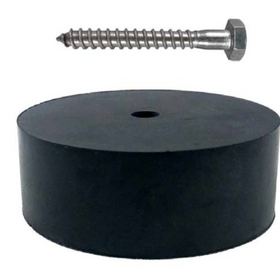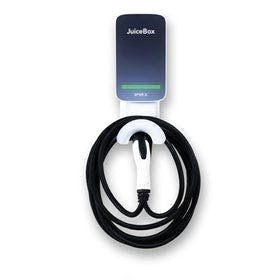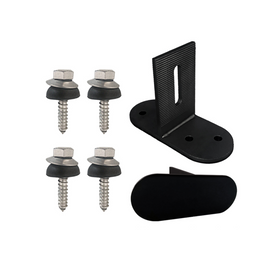
Generators and Backup Power Alternatives
Last Updated: Feb 19, 2025While a summer night without power might be an excellent excuse to get away from our screens, light up some candles, and have a family game night, extended power outages (especially during extreme cold and heat) can be precarious and threatening to our wellbeing. To avoid the potential dangers of having a home without power, investing in a generator is an excellent way to have a backup power source when the next mega-storm hits.
Unfortunately, the traditional gasoline or diesel-powered generators have a considerable carbon footprint of up to 5 kg of CO2 per liter of fuel used. Diesel generators emit over 40 toxic air contaminants, and diesel exhaust is suspected to be a known carcinogen. Thankfully, there are some healthier and less detrimental generators, and we go over these options below.
Table of Contents
- What Is a Solar Generator?
- What Is a Biodiesel Generator?
- What Is a Fuel Cell Generator?
- Battery Backup Alternatives

What Is a Solar Generator?
Solar generators are one of the most environmentally friendly types of energy generators on the market, i.e., they have a smaller footprint than most. Of course, millions of people rely on solar energy as their usual source of energy, not just emergency events. In early 2016, over a million homes in the US reportedly had a solar panel installed for their households' energetic consumption. In 2019, that number doubled to two million, and it is expected to reach four million by 2023.
Solar panels supplement the energy you pull from the electrical grid. Those same solar panels will generate electricity for your home during power outages. However, if you do not have a battery backup installed, you will only pull energy during the day.
Suppose you have a solar generator kit that you only plan to use during emergency power outages. In that case, it is worth noting that the system will need to charge for several hours (or days) before being a reliable energy source. You will also need to make sure that you have a place on your property where you can capture enough sun with your solar generator. In the northern hemisphere, angling solar generators to the southern horizon will maximize solar gain.

What Is a Biodiesel Generator?
Biodiesel generators are another alternative for producing electricity during power outages. The original inventor of the diesel engine originally designed his creation to run on peanut oil. Then, it is no surprise that many diesel-operated generators can be altered to run on biodiesel fuel.
Biodiesel fuel comes from various types of vegetable oils. Because vegetable oils have varying viscosities (thicknesses), some diesel generators will require biodiesel, a mix of plant oils, and diesel fuel. Other generators, however, can run entirely on plant oils.
Keep in mind that there are still adverse effects associated with biofuels like biodiesel. There are differing opinions regarding whether biofuels will lead to reductions in greenhouse gas emissions. There are concerns about how dedicating large cropland areas for biodiesel production might affect the overall food security of small, subsistence farmers around the world.
Fortunately, our addiction to fast-food restaurants could provide a reliable source of purchasable recycled plant oil for use in biodiesel generators.
McDonald's restaurants in the UK converted their fleet of delivery trucks to run on biodiesel back in 2007. In 2018, they implemented this in India as well. The fuel comes from leftover cooking oil, and they still have enough remaining to sell on the market. You might be able to find a steady supply of recycled plant oil to run a biodiesel generator from the fast-food restaurants across town.

What Is a Fuel Cell Generator?
Fuel cell power has been talked about as the wave of the future for many years. Generators of this sort might very well be a way to power homes during energy outages and everyday living. Unfortunately, most fuel cell generators have been prohibitively expensive for the average homeowner.
An article in the MIT Technology Review Magazine, however, details an inexpensive home fuel cell generator. While fuel cell generators can be powered by natural gas, propane, or diesel (or potentially biodiesel), they generate electricity through electrical chemical reactions and not combustion. This makes these generator types much more efficient, cleaner, and environmentally friendly despite using fossil fuels.
Redox Energy is currently the leader in fuel cell generators. Their natural gas-powered fuel cell energy costs around $800 per kilowatt. So, you should be able to pay back your investment within two years.

Battery Backup Alternatives
One alternative to generators is to have a battery backup option for your home. Many homes with solar panels installed might have a battery pack to store some of the excess energy for use during the nighttime hours. But, battery backup power can charge from any source of electricity.
Orison Energy offers one all-in-one, self-installable home battery system. This battery system will give you instant backup power during an extended power outage without your current home electrical setup re-wiring. Orison also offers a helpful calculator to estimate how long it will take you to pay yourself back for this investment.
Battery technologies are expected to continue to decrease in price for home battery systems and electric cars. Lithium-ion batteries have already seen a dramatic 90% drop in price between 2010 and 2019. While much of these battery technologies are being developed to integrate with home photovoltaic systems, they will be helpful for battery backup power, no matter where your energy comes from.
Tobias Roberts
Tobias runs an agroecology farm and a natural building collective in the mountains of El Salvador. He specializes in earthen construction methods and uses permaculture design methods to integrate structures into the sustainability of the landscape.










